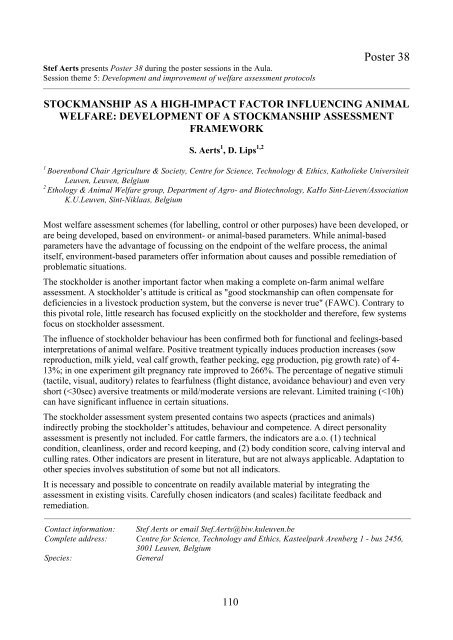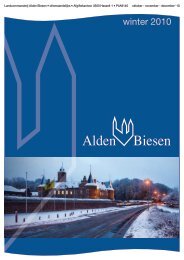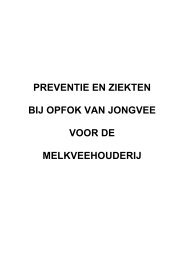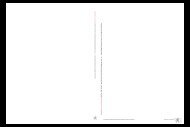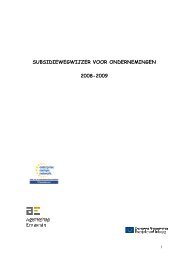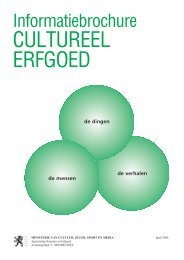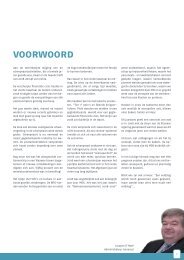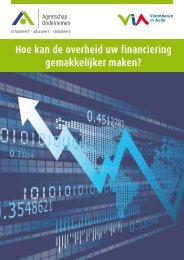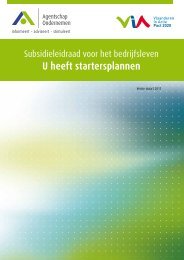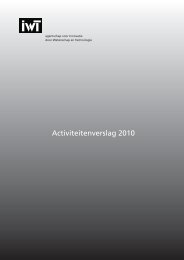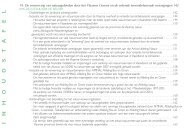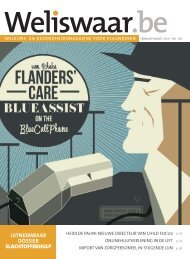Acknowledgements Book of abstracts - Publicaties - Vlaanderen.be
Acknowledgements Book of abstracts - Publicaties - Vlaanderen.be
Acknowledgements Book of abstracts - Publicaties - Vlaanderen.be
You also want an ePaper? Increase the reach of your titles
YUMPU automatically turns print PDFs into web optimized ePapers that Google loves.
Stef Aerts presents Poster 38 during the poster sessions in the Aula.<br />
Session theme 5: Development and improvement <strong>of</strong> welfare assessment protocols<br />
110<br />
Poster 38<br />
STOCKMANSHIP AS A HIGH-IMPACT FACTOR INFLUENCING ANIMAL<br />
WELFARE: DEVELOPMENT OF A STOCKMANSHIP ASSESSMENT<br />
FRAMEWORK<br />
S. Aerts 1 , D. Lips 1,2<br />
1<br />
Boerenbond Chair Agriculture & Society, Centre for Science, Technology & Ethics, Katholieke Universiteit<br />
Leuven, Leuven, Belgium<br />
2<br />
Ethology & Animal Welfare group, Department <strong>of</strong> Agro- and Biotechnology, KaHo Sint-Lieven/Association<br />
K.U.Leuven, Sint-Niklaas, Belgium<br />
Most welfare assessment schemes (for la<strong>be</strong>lling, control or other purposes) have <strong>be</strong>en developed, or<br />
are <strong>be</strong>ing developed, based on environment- or animal-based parameters. While animal-based<br />
parameters have the advantage <strong>of</strong> focussing on the endpoint <strong>of</strong> the welfare process, the animal<br />
itself, environment-based parameters <strong>of</strong>fer information about causes and possible remediation <strong>of</strong><br />
problematic situations.<br />
The stockholder is another important factor when making a complete on-farm animal welfare<br />
assessment. A stockholder’s attitude is critical as "good stockmanship can <strong>of</strong>ten compensate for<br />
deficiencies in a livestock production system, but the converse is never true" (FAWC). Contrary to<br />
this pivotal role, little research has focused explicitly on the stockholder and therefore, few systems<br />
focus on stockholder assessment.<br />
The influence <strong>of</strong> stockholder <strong>be</strong>haviour has <strong>be</strong>en confirmed both for functional and feelings-based<br />
interpretations <strong>of</strong> animal welfare. Positive treatment typically induces production increases (sow<br />
reproduction, milk yield, veal calf growth, feather pecking, egg production, pig growth rate) <strong>of</strong> 4-<br />
13%; in one experiment gilt pregnancy rate improved to 266%. The percentage <strong>of</strong> negative stimuli<br />
(tactile, visual, auditory) relates to fearfulness (flight distance, avoidance <strong>be</strong>haviour) and even very<br />
short (


